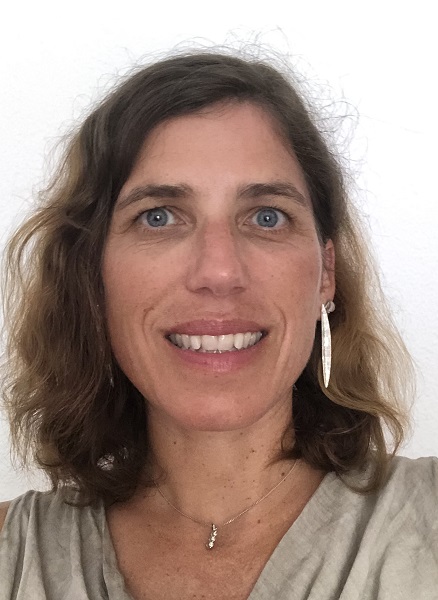CAT Alumni: Rebekka Dieterich-Hartwell '00 '19, PhD, BC-DMT, LPC
March 20, 2020
To celebrate Creative Arts Therapies Week and the incredible education the College of Nursing and Health Professions affords students, we caught up with some alumni who are more than happy to talk about their Drexel experience.
 Rebekka Dieterich-Hartwell '00 & '19, PhD, BC-DMT, LPC
Rebekka Dieterich-Hartwell '00 & '19, PhD, BC-DMT, LPC
Why did you choose the College of Nursing and Health Professions Creative Arts Therapies program?
In 2015 I encountered a sudden break in my life—I was laid off from my dance/movement therapy (DMT) job and, with our three children in school, I pondered what my next chapter would entail. I thought about going back to school and, ultimately, the idea of contributing to my field of DMT through advanced studies specific to the creative arts therapies and acquired research experiences was what drew me to CNHP’s the PhD program. Enrolling here was also a pragmatic decision since I had to stay local—my family and I live outside of Philadelphia.
How was your practicum/internship experience?
This process was challenging and yet rewarding in the end. I wanted my internship to inform my dissertation focus—movement experiences with refugees who have undergone trauma—and thus had to research venues that would give me access to this population.
I spent three weeks in Heidelberg, Germany, with refugee children (ages 4-11) at the Patrick Henry Village, a large refugee collection center. During this time, I also coauthored a paper on creative arts therapies with refugees. The larger portion of my internship was an advanced clinical practicum at the Nationalities Service Center (NSC) in Philadelphia, a large non-sectarian organization serving immigrants and refugees in the greater Philadelphia area since 1921. This was a true learning experience as I became familiar with the legal, health, job and language challenges of refugees and asylum seekers. Over the course of eight months, I developed clinical assessment skills for multicultural clients, created DMT protocols specifically for refugees and conducted both group and individual DMT sessions. This experience was extremely valuable as it helped me grow as a person and clinician and prepared me for the challenges I would face during my dissertation phase.
What impact did Drexel’s CAT program have on you?
One of the unique aspects of the CAT PhD program was the inclusion of artistic inquiry. For almost all assignments we were asked to create an artistic response that would express the topic or problem at hand. This was not at all easy in the moment and I actually often struggled with it. However, this special way of embracing the unknown has impacted me to this day. I still, at times, engage in personal artistic investigations in order to understand processes that are inexplicable through the mind alone. Furthermore, both the candidacy process—a deeply refining experience that allowed me to get a grasp on my professional identity—and the dissertation process—a long and humbling marathon with a rewarding finish—have shaped me and the way I look at life.
What advice would you give someone applying to a Drexel CAT program?
I was very grateful to have my family right here with me. Being a wife and mom to my three daughters was not negotiable and I wanted to prioritize my family in the midst of this program. This helped me balance my life and keep things in perspective. So, my advice is to really lean into your resources, your support system, continue to engage in art (whatever modality, but especially your modality) and practice good self-care. I also found that organization was of the essence and recommend creating a system that works for you and allows you to quickly locate folders, papers, etc.
What makes you a proud alumni of Drexel’s CAT program?
I have noticed that whenever I tell people what institution I received my PhD from, the response is an approving nod. Drexel is known for its rigor and I can claim wholeheartedly that this program was rigorous. I am a proud and confident alumni of this department because I believe that my work was of high quality and that those who walked before and after me have produced and will produce valuable and important research contributions.